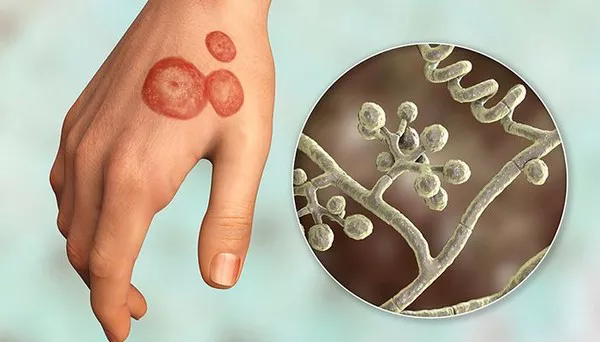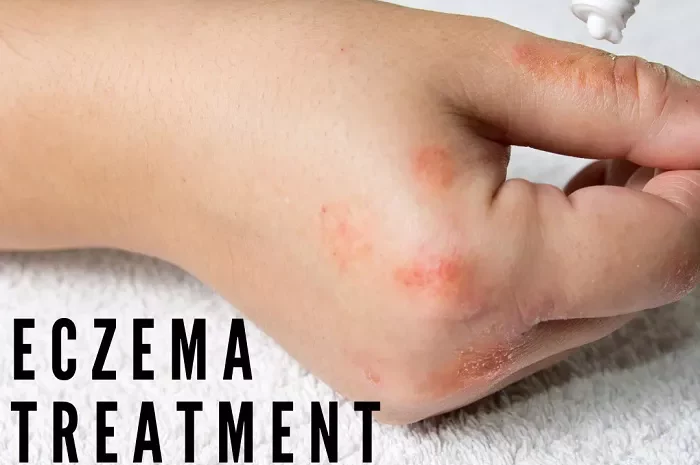Ringworm, despite its name, is not caused by a worm but rather by a fungal infection. It manifests as a circular, red rash on the skin that can be itchy and unsightly. Medically known as dermatophytosis, ringworm is caused by various fungi that thrive on the skin’s outer layer. While treatment can effectively clear up the infection, many individuals wonder whether ringworm can recur after treatment. This article explores the nature of ringworm, treatment options available, factors influencing recurrence, prevention strategies, and what to do if ringworm returns.
Understanding Ringworm
Ringworm is a common fungal infection that affects the skin, scalp, and nails. The fungi responsible for ringworm belong to a group called dermatophytes, which can live on the skin’s dead tissues, including hair and nails. Despite its name, ringworm has no connection with worms. It derives its name from the characteristic ring-shaped rash it often produces on the skin.
Types of Ringworm
Ringworm can affect different parts of the body, leading to specific types such as:
- Tinea corporis: Ringworm on the body
- Tinea capitis: Ringworm on the scalp
- Tinea pedis: Athlete’s foot, affecting the feet
- Tinea cruris: Jock itch, affecting the groin area
- Tinea unguium: Ringworm of the nails
Each type of ringworm is caused by different dermatophyte fungi but shares common symptoms of red, scaly patches that may itch or burn.
Treatment of Ringworm
Treatment for ringworm typically involves antifungal medications that can be applied topically (on the skin) or taken orally (by mouth). The choice of treatment depends on the severity and location of the infection:
1. Topical Antifungals: Over-the-counter creams, lotions, or powders containing antifungal agents such as clotrimazole, miconazole, or terbinafine are commonly used for mild to moderate cases of ringworm. These medications are applied directly to the affected area and are generally effective in clearing up the infection within a few weeks.
2. Oral Antifungals: In cases of severe or widespread ringworm, or when topical treatments are ineffective, oral antifungal medications such as fluconazole, itraconazole, or griseofulvin may be prescribed by a healthcare provider. Oral antifungals work from within the body to eliminate the fungi causing the infection.
3. Shampoo or Washes: For ringworm of the scalp (tinea capitis), medicated shampoos containing antifungal agents may be recommended. These shampoos are used in conjunction with oral antifungal medications for effective treatment.
Can Ringworm Come Back After Treatment?
Despite effective treatment, ringworm can indeed come back, especially under certain circumstances. Several factors contribute to the recurrence of ringworm:
1. Incomplete Treatment: Failing to complete the full course of antifungal treatment as prescribed can allow some fungi to survive and potentially cause a recurrence of the infection.
2. Reinfection from Environment: Dermatophyte fungi that cause ringworm are contagious and can survive on surfaces such as towels, clothing, bedding, and gym equipment. Contact with these contaminated surfaces can lead to reinfection.
3. Weakened Immune System: Individuals with weakened immune systems, such as those with HIV/AIDS or undergoing chemotherapy, are more susceptible to fungal infections like ringworm. They may experience more frequent or severe episodes of ringworm.
4. Prolonged Exposure to Moisture: Moist and warm environments provide ideal conditions for fungal growth. Activities or occupations that involve prolonged exposure to moisture, such as wearing sweaty clothing or using communal showers, can increase the risk of ringworm recurrence.
5. Underlying Skin Conditions: Certain skin conditions, such as eczema or psoriasis, can predispose individuals to fungal infections like ringworm. Treating and managing these underlying conditions effectively can help prevent recurrence.
Prevention Strategies
Preventing ringworm recurrence involves adopting good hygiene practices and taking precautions to minimize exposure to fungi:
1. Keep Skin Dry and Clean: Dry your skin thoroughly after bathing or swimming, especially in areas prone to sweating.
2. Avoid Sharing Personal Items: Refrain from sharing towels, clothing, or sports equipment that may harbor fungi.
3. Wash Hands Regularly: Practicing good hand hygiene, especially after touching animals or potentially contaminated surfaces, can reduce the risk of spreading fungi.
4. Avoid Walking Barefoot: Wear flip-flops or sandals in communal showers, locker rooms, and around pools to reduce exposure to fungi that cause athlete’s foot.
5. Treat Pets for Ringworm: Pets, particularly cats, can carry and transmit ringworm. Regularly bathe and treat pets as recommended by a veterinarian to prevent transmission.
SEE ALSO: How to Get Rid of Scalp Ringworm
What to Do If Ringworm Returns
If ringworm returns despite treatment, it is essential to consult a healthcare provider for further evaluation and management. The following steps may be recommended:
1. Reassessment: A healthcare provider can assess the recurrence and determine whether additional or alternative treatments are necessary.
2. Antifungal Therapy: Depending on the severity and location of the recurrence, a healthcare provider may prescribe a different antifungal medication or recommend a longer course of treatment.
3. Skin Culture: In some cases, a skin culture may be performed to identify the specific fungus causing the infection and guide targeted treatment.
4. Underlying Conditions: Addressing underlying conditions that may predispose to fungal infections, such as managing diabetes or treating immune system disorders, can help reduce the risk of recurrence.
Conclusion
In conclusion, ringworm can recur after treatment due to various factors, including incomplete treatment, reinfection from the environment, weakened immune system, prolonged exposure to moisture, and underlying skin conditions. Prevention strategies such as good hygiene practices, avoiding sharing personal items, and treating pets for ringworm can help minimize the risk of recurrence. If ringworm returns despite treatment, consulting a healthcare provider for evaluation and management is crucial to effectively clear the infection and prevent further episodes. With proper treatment and preventive measures, individuals can manage ringworm effectively and maintain healthy skin hygiene.
Related Topics:



























